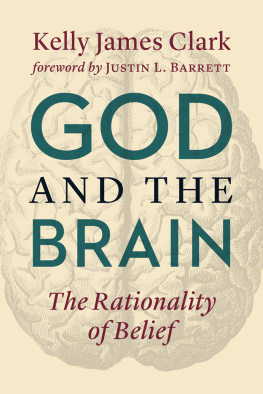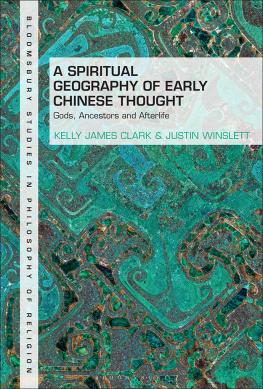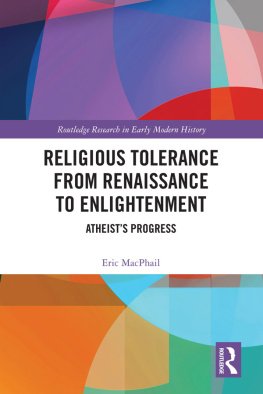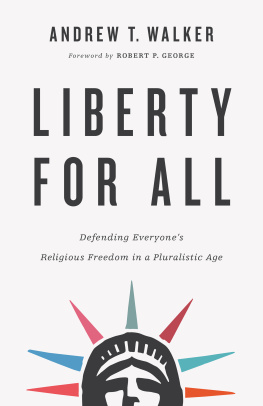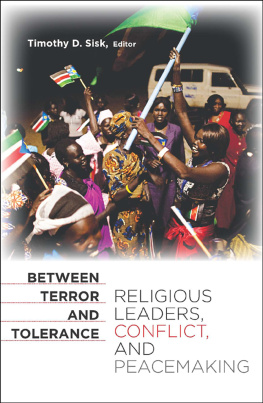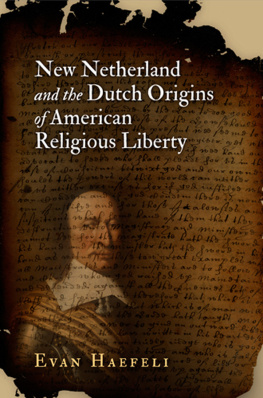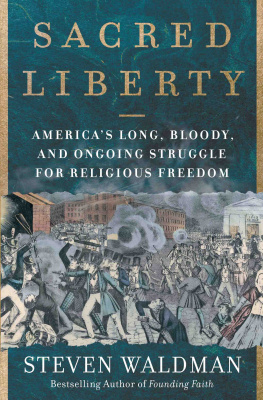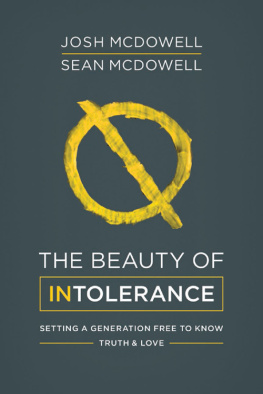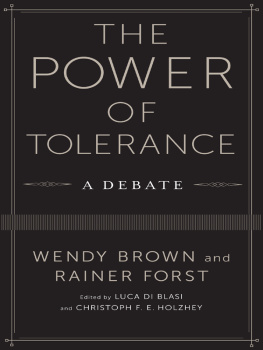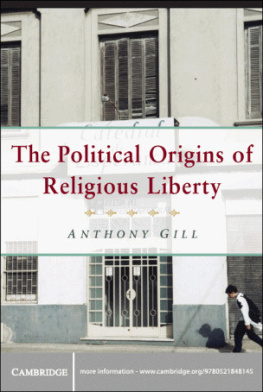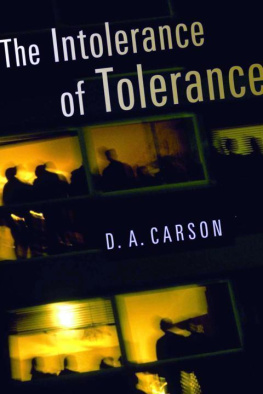Abrahams Children

Published with assistance from the John Templeton Foundation.
Copyright 2012 by Kelly James Clark.
All rights reserved.
This book may not be reproduced, in whole or in part, including illustrations, in any form (beyond that copying permitted by Sections 107 and 108 of the U.S. Copyright Law and except by reviewers for the public press), without written permission from the publishers.
Yale University Press books may be purchased in quantity for educational, business, or promotional use. For information, please e-mail sales.press@yale.edu (U.S. office) or sales@yaleup.co.uk (U.K. office).
Set in Sabon type by Westchester Book Group
Printed in the United States of America
Library of Congress Cataloging-in-Publication Data
Abrahams children : liberty and tolerance in an age of religious conflict / edited by Kelly James Clark.
p. cm.
Includes bibliographical references and index.
ISBN 978-0-300-17937-8 (pbk. : alk. paper) 1. Freedom of religion. 2. Religious tolerance. 3. Abrahamic religions. 4. ReligionsRelations. I. Clark, Kelly James, 1956
BL640.A27 2012
201'.5dc23
2011044936
A catalogue record for this book is available from the British Library.
This paper meets the requirements of ANSI/NISO Z39.48-1992 (Permanence of Paper).
10 9 8 7 6 5 4 3 2 1
To Stewart Shapiro
who prodded/inspired me/this project
Peace
When will you ever, Peace, wild wooddove, shy wings shut,
Your round me roaming end, and under be my boughs?
When, when, Peace, will you, Peace? Ill not play hypocrite
To own my heart: I yield you do come sometimes; but
That piecemeal peace is poor peace. What pure peace allows
Alarms of wars, the daunting wars, the death of it?
O surely, reaving Peace, my Lord should leave in lieu
Some good! And so he does leave Patience exquisite,
That plumes to Peace thereafter. And when Peace here does house
He comes with work to do, he does not come to coo,
He comes to brood and sit.
Gerard Manley Hopkins
Contents
Kelly James Clark,
Einat Ramon,
Dov Berkovits,
Leah Shakdiel,
Arik Ascherman,
Nurit Peled-Elhanan,
Jimmy Carter,
Nicholas Wolterstorff,
Ziya Meral,
Hanna Siniora,
Miroslav Volf,
Abdurrahman Wahid,
Hedieh Mirahmadi,
M. Fethullah Glen,
Rana Husseini,
Abdolkarim Soroush,
About two years ago, I started inviting prominent Muslims, Christians, and Jews to defend religious liberty and tolerance from within their own faith traditions. Not that it was a race, but former president Jimmy Carter, arguably the most famous and unarguably the oldest contributor, finished first. Kudos to President Carter! The last to finish, He Who Will Not Be Named, gave me a few gray hairs as the deadline passed.
There is no end of books in defense of liberty and tolerance written from a Western, liberal, enlightenment perspective. But those preach only or mainly to the Western or Western-influenced choir. For more conservative Muslim, Christian, and Jewish choirs, music in their own theological language is required. The authors of these essays were asked to refer and defer to their own Holy Writ, theological reflection, and tradition. Moreover, they were asked to appeal to a wide audience and so to include stories but avoid scholarly pedantry (lo, that last phrase is pedantic; I thus repent). In short, they were asked to be persuasive.
Each essay is, of course, intended to be persuasive to those who share their tradition. But there is also the hope that each essay will prove persuasive to those outside each authors own traditionthat readers from various traditions will sympathetically understand practitioners of other religions. Perhaps, even, outsiders will see themselves in the formative faith and fundamental practices of those in other traditions. Sympathetic understanding makes it a lot harder to restrict the liberty of others.
Some will look over the list of contributors and think (and others will say and some will even write), Why wasnt so-and-so included? where so-and-so is the obviously best Muslim, Christian, or Jewish thinker on the topic of religious liberty and tolerance. Suffice it to say that so-and-so may have been invited but refused the invitation. Although tempted, I will not name those who lacked the good sense to participate in this project. And some will think, say, or write, Why wasnt this or that view or theological position represented? Again, suffice it to say that I asked countless people for advice about whom and what to include. I did my best to be inclusive of people, genders, and positions. We got what we got. And its pretty darn good.
I did not dictate or even suggest what anyone would write. Each author was given a free hand. And so although each author is committed to peace, liberty, and justice, there is a great deal of disagreement about the causes of injustice and intolerance and, hence, any possible solutions. So be it. Its a messy world we live in.
Finally, a note about the essays by the presidents. Much of Jimmy Carters essay is excerpted, with his permission, from previously published works. From his books and speeches we excerpted various of his writings on the topic of this volume. President Carter then carefully read the essay over, added something here and there, and then returned it to us with permission to publish. We took extraordinary and heroic efforts to secure the publishers permissions to publish those excerpts. We regret that so far those efforts have been in vain. We do credit, at the end of his essay, every publisher from which we excerpted portions of his essay. With regard to President Abdurrahman Wahids essay, we are grateful to his good friend C. Holland Taylorwith whom President Wahid established LibForAll Foundation and its International Institute of Quranic Studiesfor kindly granting us permission to include it in this volume. LibForAlls Kyai Haji Hodri Ariev provided valuable editorial assistance in preparing the essay for publication.
This sort of collaborative project requires the work of many hands. I wish to thank my research assistants, Emmalon Davis and Dan Hooley, for their invaluable insights and excellent work. Thanks also to my lovely daughter, Emily, and Grace Hardy for help in preparing the manuscript for publication. Im grateful to the Calvin College Philosophy Department Colloquium for suggestions on improving my essay. And, most of all, I wish to express my gratitude to my administrative assistant, Donna Romanowski, for her indefatigable work and good cheer at every stage of this project.
KELLY JAMES CLARK
History is full of religious wars; but, we must take care to observe, it was not the multiplicity of religions that produced these wars, it was the intolerating spirit which animated that one which thought she had the power of governing.
Baron de Montesquieu
Caricatures of Religious Intolerance
There is a familiar narrative of religiously motivated violence. It claims a long and unbroken chain from antiquity to the present of the intolerance on the part of religious groups, especially the Abrahamic religions, toward members of other religious groups. It is a narrative of violence, oppression, torture, and war. This highly selective narrative omits any of the goods that religions have brought to the world and is deeply caricatured. Many of its claims are blatantly false. Sadly, because of its influence, it needs to be retold, reconsidered, and reevaluated.
Caricature #1. The early Hebrews, under strict orders from their God, razed villages devoted to competing gods, destroying men, women, and children alike. Their subsequent oppression by virtually every other religious group and their forced sojourn from their home is well known. And the Holocaust is surely one of the worst atrocities in all of human history. But since their return to Israel, the oppressed have become the oppressorsthe Palestinians were forcibly rejected from their homeland of more than 2,000 years and are treated as second-class citizens or worse. Any non-Jew who dares question Israeli policies is an enemy of Israel and an anti-Semite; Jews who dare question Israeli policies are self-loathing and self-hating.
Next page

